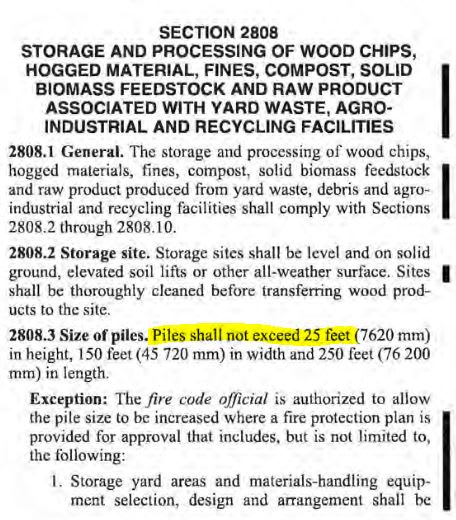UofAGrad
Structural
- Apr 16, 2013
- 27
Hi All,
I'm not finding the reading material I'm looking for online so I was hoping someone here could shed some light on a situation. During a grubbing project completed January 2023, mulch piles were kept below the maximum height (~50') and the advised Length and Width(I forget these dimensions). What would cause this mulch pile to (seemingly) spontaneously ignite 10 months later? Is that not very surprising to someone more knowledgeable on the subject?
Disclaimer: this was caught and put out quickly. it was isolated to an area with no other flammable sources nearby.
Thanks!
I'm not finding the reading material I'm looking for online so I was hoping someone here could shed some light on a situation. During a grubbing project completed January 2023, mulch piles were kept below the maximum height (~50') and the advised Length and Width(I forget these dimensions). What would cause this mulch pile to (seemingly) spontaneously ignite 10 months later? Is that not very surprising to someone more knowledgeable on the subject?
Disclaimer: this was caught and put out quickly. it was isolated to an area with no other flammable sources nearby.
Thanks!

